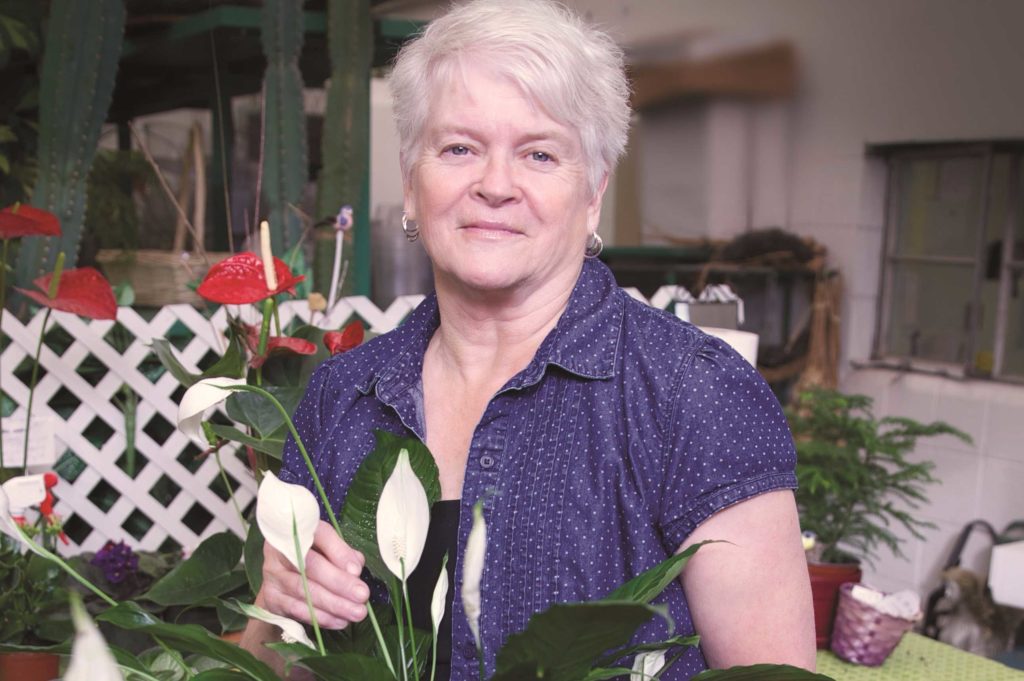 RICHLAND, Wash. — A Washington florist who has been accused of discrimination for declining a regular customer’s request that she create floral arrangements for his same-sex ceremony is taking her case to the U.S. Supreme Court. Barronelle Stutzman of Arlene’s Flowers in Richland, Washington had provided a referral to the customer instead.
RICHLAND, Wash. — A Washington florist who has been accused of discrimination for declining a regular customer’s request that she create floral arrangements for his same-sex ceremony is taking her case to the U.S. Supreme Court. Barronelle Stutzman of Arlene’s Flowers in Richland, Washington had provided a referral to the customer instead.
“Barronelle is an artist with a conscience who cannot separate her artistic creativity from her soul. Her objection is not to any person or group with a particular sexual orientation, but to creating expression that celebrates a view of marriage that directly contradicts her faith,” the petition, filed on Friday by Alliance Defending Freedom (ADF), reads.
It contends that the floral arrangements—the colors and types, and the various meanings or memories they represent—are forms of speech that can entangle the florist in personally being involved in creating designs that express or symbolize love between two men in violation of her faith.
“Barronelle’s custom wedding designs are artistic expression protected by the First Amendment as pure speech. At a highly simplistic level, red roses communicate love and red poinsettias Christmas. So it should come as no surprise that flowers may speak messages,” the filing outlines. “[I]ndeed, the Victorians took this ‘language of flowers’ to a new level by popularizing dozens of books on the coded meanings of flowers and crafting bouquets to send simple messages to one another.”
“Barronelle’s custom wedding designs do far more by expressing, in abstract form, her vision of the couple’s unique personalities, style, and what they want their ceremony to be, thereby setting the tone for the wedding celebration,” it states.
“Through her distinctive floral designs, Barronelle celebrates the couple’s particular union, which requires not only that she invest herself creatively and emotionally in their wedding ceremony, but also that she dedicate herself artistically to memorializing and formalizing it in three-dimensional form.”
As previously reported, in 2012, Washington Attorney General Bob Ferguson leveled Stutzman with a lawsuit as he claimed that she violated the law by declining to decorate a same-sex “wedding” and rather provided a referral.
Stutzman had been approached by one of her faithful customers, Robert Ingersoll, a homosexual, as he wanted her to supply the floral arrangements for his then-upcoming ceremony with his partner, Curt.
“We had gone to Arlene’s for many years and enjoyed her service. She did a great job for us, so it was just natural for us to go there to have her do our flowers,” Freed told KUOW radio.
Stutzman stated that she politely explained that she would not be able to help in regard to the event, but referred him to three other florists that could be of assistance.
“I just took his hands and said, ‘I’m sorry. I cannot do your wedding because of my relationship with Jesus Christ,’” Stutzman told reporters.
But after Ingersoll decided to post on Facebook about the matter, controversy arose on both sides of the issue—both for and against Stutzman. The florist said that she received a number of threatening and angry comments.
“It blew way out of proportion,” Stutzman explained. “I’ve had hate mail. I’ve had people that want to burn my building. I’ve had people that will never shop here again and [vow to] tell all their friends.”
Weeks later, Attorney General Bob Ferguson issued Stutzman a letter advising that she must accommodate homosexual ceremonies or be subject to a lawsuit and heavy fines. He included with his letter a form that offered Stutzman the opportunity to recant and agree to comply with the law. She refused, and was subsequently met with a discrimination suit.
But Stutzman’s attorneys contended that Ferguson’s actions were inappropriate since he never received a complaint, but rather filed on his own volition. They also filed a motion asking that Ferguson and the ACLU—which filed a separate suit—be prohibited from attacking Stutzman on a personal level.
In January 2015, Benton County Superior Court Judge Alex Eckstrom—while throwing out a charge that accused Stutzman of directing her business to violate the state’s anti-discrimination laws—ruled that the florist may be held personally responsible for the incident.
A month later, Eckstrom granted summary judgment to Stutzman’s opponents, agreeing that she had committed an act of discrimination. The court also ordered Stutzman to provide full service to same-sex ceremonies, which includes not only accepting the order, but also delivering to the homosexual celebration, and assisting with the specific arrangements and decoration on-site.
She appealed to the Washington Supreme Court, which unanimously upheld the lower court ruling in February.
“Discrimination based on same-sex marriage constitutes discrimination on the basis of sexual orientation. We therefore hold that the conduct for which Stutzman was cited and fined, in this case—refusing her commercially marketed wedding floral services to Ingersoll and Freed because theirs would be a same-sex wedding—constitutes sexual orientation discrimination under the WLAD (Washington Law Against Discrimination),” the court wrote.
Stutzman is now hoping that the U.S. Supreme Court will take her case and couple it with Masterpiece Cakeshop v. Colorado Civil Rights Commission, which it agreed to hear last month.
“Our nation has a long history of protecting the right to dissent, but simply because Barronelle disagrees with the state about marriage, the government and ACLU have put at risk everything she owns,” ADF Senior Counsel Kristen Waggoner said in a statement. “This includes not only her business, but also her family’s savings, retirement funds, and home.”
“Not only does her case and Jack Phillips’ case involve similar issues, but both Barronelle and Jack face burdensome penalties for simply exercising their right of free expression,” she noted.
Become a Christian News Network Supporter...


